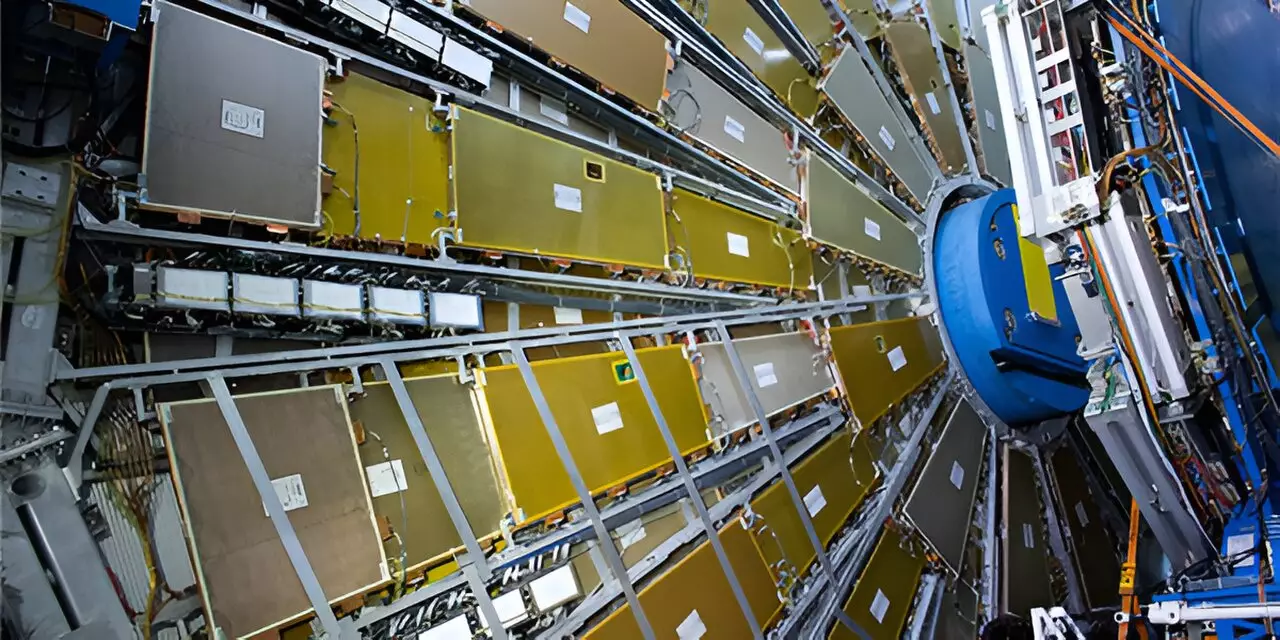The field of particle physics is constantly evolving, with researchers like Professors Andreas Crivellin and Bruce Mellado uncovering deviations in the behavior of particles that may point to the existence of new bosons. These deviations, particularly in the decay of multi-lepton particles, challenge the predictions of the Standard Model and offer a glimpse into the unknown realms of particle physics.
Particle physics delves into the fundamental constituents of matter, such as protons, neutrons, and leptons, to unravel the mysteries of the universe. Leptons, which include electrons, play a crucial role in forming composite particles like atoms. By studying the decay of leptons, researchers can investigate the composition of particles and potentially discover new phenomena beyond the Standard Model.
The discovery of the Higgs boson in 2012 at the Large Hadron Collider (LHC) was a monumental achievement in particle physics. This elusive particle, predicted in 1964, completed the Standard Model and provided insights into how fundamental particles acquire mass. The recognition of the Higgs boson by Francois Englert and Peter Higgs in 2013 marked a significant milestone in physics and opened doors to further groundbreaking discoveries.
Crivellin and Mellado’s research highlights deviations in the decay of multi-lepton particles at the LHC, deviating from the predictions of the Standard Model. These anomalies, characterized by excesses in electron and muon production, signify a departure from the expected behavior in particle interactions. Such anomalies serve as early indicators of potential discoveries, including the existence of new bosons that could revolutionize our understanding of matter and forces in nature.
Anomalies in particle physics often lead to significant breakthroughs, as evidenced by past discoveries like the Higgs boson. These deviations from established theories signal the presence of new phenomena waiting to be explored. Crivellin emphasizes the importance of anomalies in driving scientific progress and paving the way for transformative discoveries that challenge the existing norms in particle physics.
The observations of multi-lepton anomalies and the potential existence of new bosons hold profound implications for the field of particle physics. Mellado envisions that the discovery of new bosons could unravel the mysteries surrounding our current understanding of matter and unveil new forces in nature. These findings set the stage for future research endeavors that could redefine the boundaries of particle physics and provide insights into the fundamental workings of the universe.
The research conducted by Crivellin and Mellado sheds light on the intricate complexities of particle interactions and hints at the existence of new bosons beyond the scope of the Standard Model. By exploring deviations in multi-lepton decay and analyzing the anomalies observed at the LHC, researchers continue to push the boundaries of particle physics and strive towards unlocking the secrets of the universe. The legacy of late Professor Daniel Adams, who dedicated his life to advancing particle physics in South Africa, serves as a poignant reminder of the ongoing quest for knowledge and discovery in the realm of particle physics.

